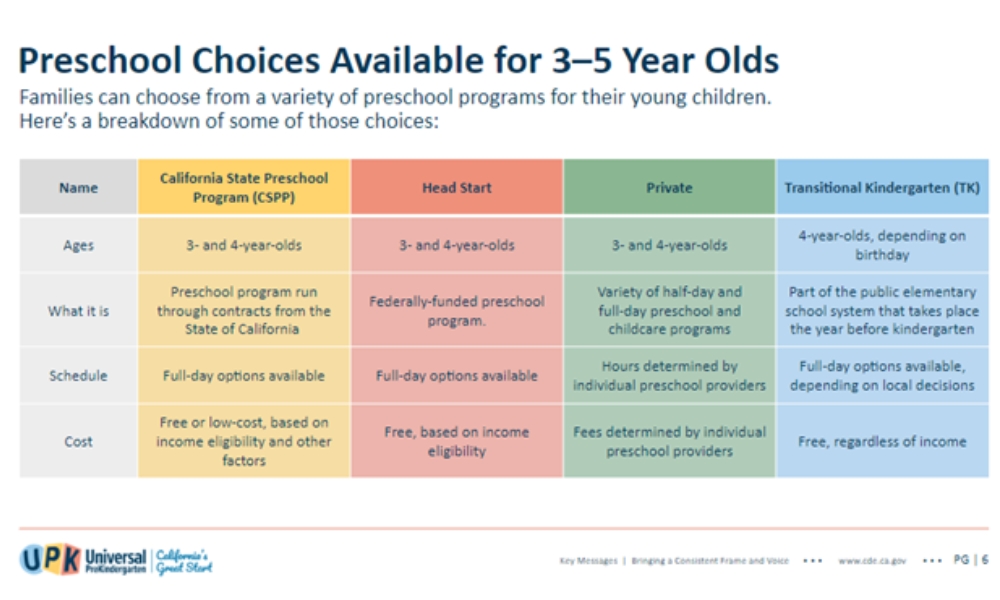QSSB’s Universal PreKindergarten Forums
In May, QSSB hosted two virtual forums focused on Universal PreKindergarten (UPK), one for providers and the other for families and caretakers. Both events aimed to bring an understanding of what UPK will mean for child care environments and parent choice.
What is Universal PreKindergarten?
Universal PreKindergarten (UPK) will bring all existing state preschools, Head Start, private child care providers, and expanded learning programs into the same system. The expansion of the state’s mixed delivery system allows educational agencies to meet the early education needs of 3- and 4-year-old children and their families. Ultimately, the program will create more free and low-cost spots, including free Transitional Kindergarten for all 4-year-olds, increase access and equity, and expand parent choice. Included in the UPK programs is:
- Access to two free meals each school day
- Early childhood mental health services
- Expanded before/after school and summer care
- Greater assistance for bilingual UPK programs
- A strong focus on anti-bias training
- Additional supports to increase early childhood knowledge and expertise
Children with access to high quality early learning environments are more prepared for school and long-term success, including improved development, lesser need for specialized education services, and a higher likelihood of high school and college graduation.
Learn more about UPK from the California Department of Education.
UPK Provider Forum
The evening’s participants included leadership from local agencies, business owners, educators, and those with a vested stake in the children and families of SB County met.
Although full implementation isn’t expected until 2025-2026, it is never too early for child care providers and county-wide support agencies like First 5 San Bernardino, San Bernardino County Superintendent County of Schools, Preschool Services Department, and Child Care Resource Center to start preparing for UPK’s statewide launch. Child care providers were encouraged to continue contributing to the conversation around UPK and mixed-delivery systems. One way to do this is by joining the Local Planning Council (LPC) and the UPK Mixed Delivery Workgroup starting this fall in September.
Watch the UPK Forum for Providers in its entirety here.
UPK Parent and Caretaker Forum
The Parent and Caretaker Forum featured speakers and panelists from First 5 San Bernardino, SBCSS Early Education and Development Department, PSD, and CCRC, organizations committed to creating access to and awareness of high quality early environments for children aged zero to five. A strong focus was placed on the importance of parent choice and the multiple pre-kindergarten options available to families.

Programs for Parents
Panelists also highlighted supplemental programs and services currently available to families:
- From PSD:
- Early Head Start Home-Based program which offers services to pregnant women, infants and toddlers
- Low Income First Time Mothers (LIFT) focusing on prenatal and infant care
- Fatherhood FIRE program focused on networking, workshops, and other supports for fathers
- From CCRC:
- Weekly virtual and in-person playgroups
- Parent Cafes, built for parents to connect and engage in conversations around parenting to strengthen families
- Check out their community calendar for playgroups, cafes and more
- Other takeaways included:
- Help Me Grow Inland Empire, a service that connects parents to developmental screenings and supports
- Reach out and Read Inland Empire, a campaign to connect books to pediatric care
You can hear all of this and more by viewing the full Parent and Provider Forum here.
QSSB and UPK
For early educators in a mixed delivery system, it means that private providers have access and equity through workforce development programs like QSSB.QSSB has been formally operating across the county for nearly eight years. The free program invites providers to increase their environment’s quality through personalized quality improvement plans, access to professional development supports and trainings, collaborative coaching, and linkages to higher education credits and certifications.
